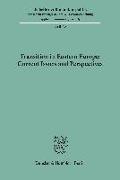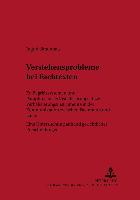- Start
- Transition in Eastern Europe: Current Issues and Perspectives
Transition in Eastern Europe: Current Issues and Perspectives
Angebote / Angebote:
This publication contains a selection of papers presented at a conference discussing fundamental issues in the economics of transition, aspects of liberalization/privatization/stabilization and the experience of selected countries. The sessions lead to a number of hypotheses: - There is a need to analyze historical and economic aspects of phases of relative success of the socialist system of central planning- Next to the important role of distribution of personal incomes and wealth for the success of the transformation process, the question of "optimal change of personal income and wealth distribution" during the process of transformation has to be raised. - In assessing the costs and benefits of reform policies, any methodological approach should take into account an intertemporal perspective - How much does the EU continue protectionism against countries which will not become its members in the near future? - The role of the institutional environment shall not be neglected when analyzing the process of transition: financial markets e. g. are of great relevance for sound development. - An early status of independence for the central bank from public finance obligations appears to help to eliminate the monetary overhang. - A quick, almost instant liberalization strategy (countries of Central and Eastern Europe) seems to be more successful than gradual liberalization (Russia, Ukraine, Belarus) along with interventionism of trade policy.
Folgt in ca. 5 Arbeitstagen



